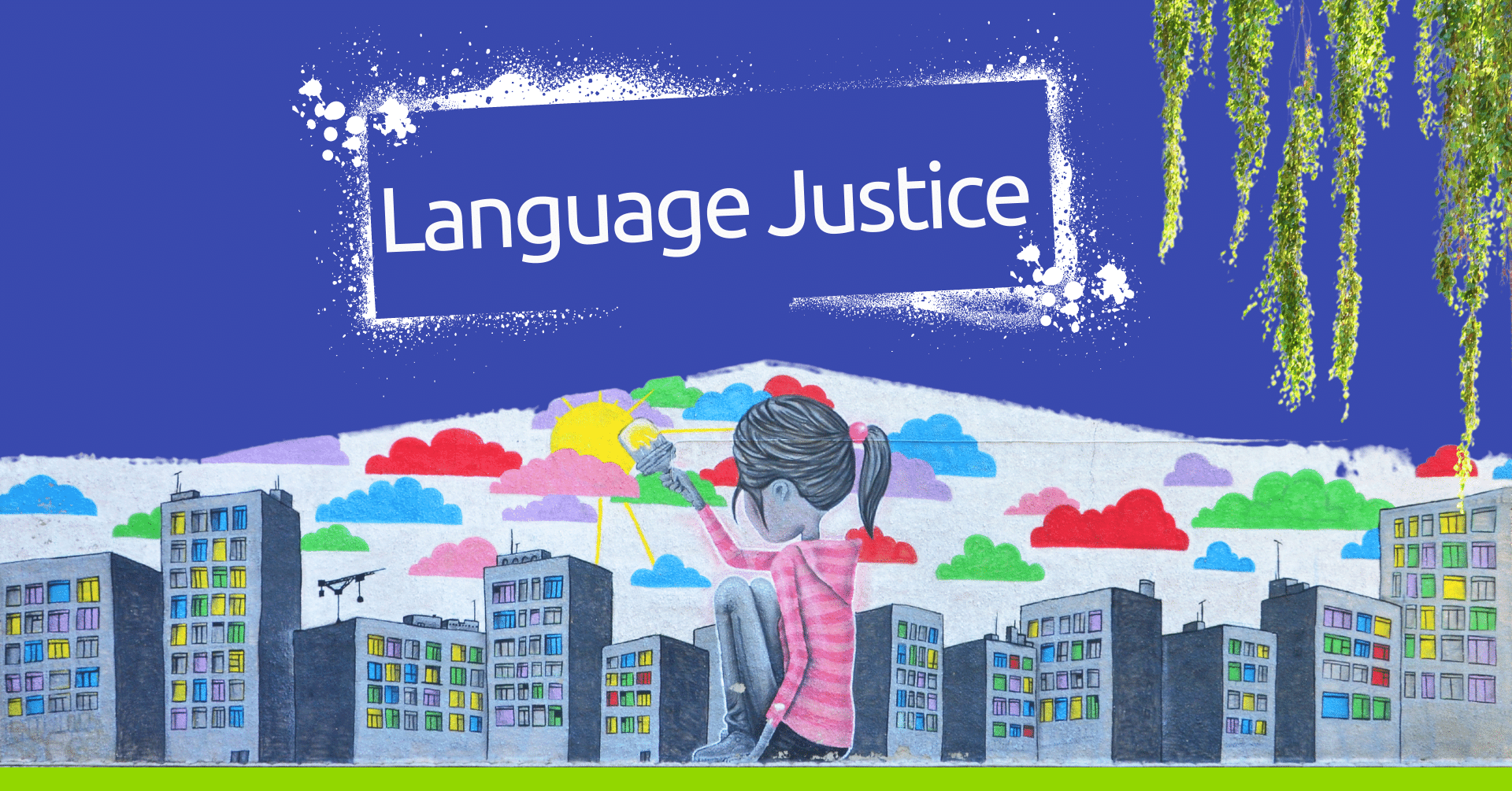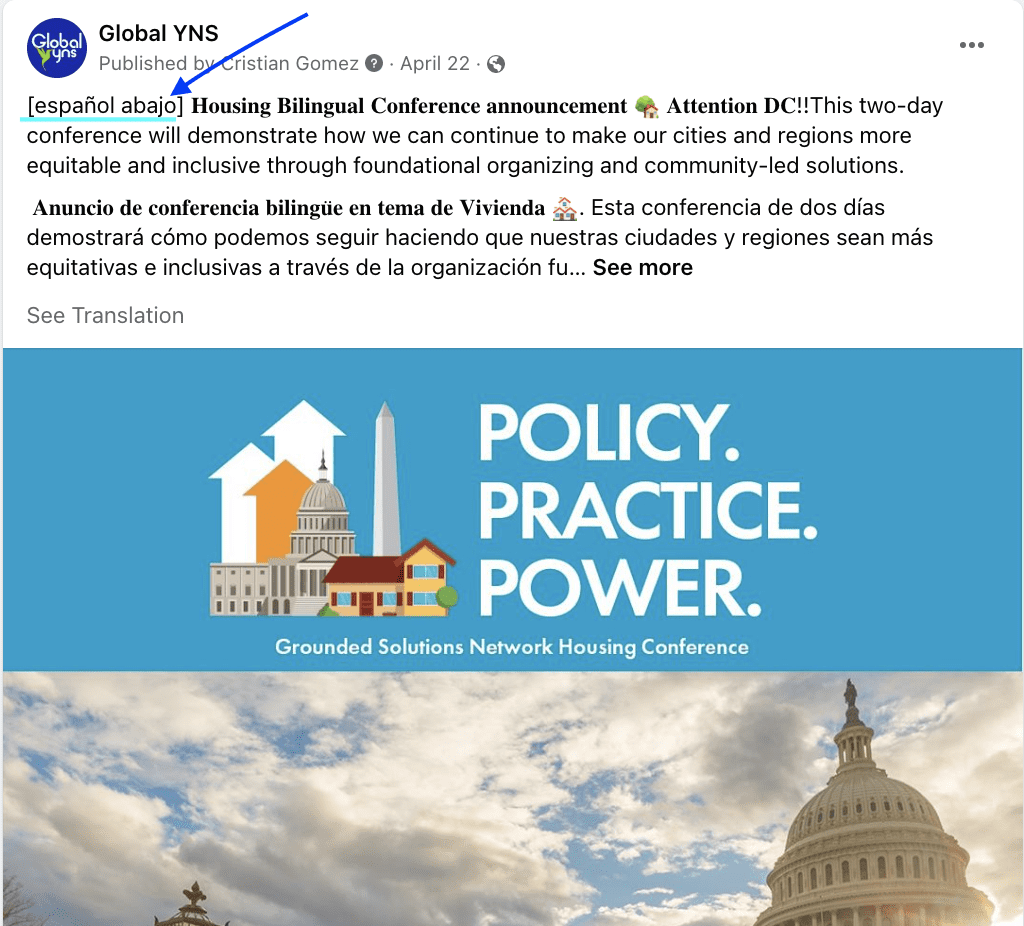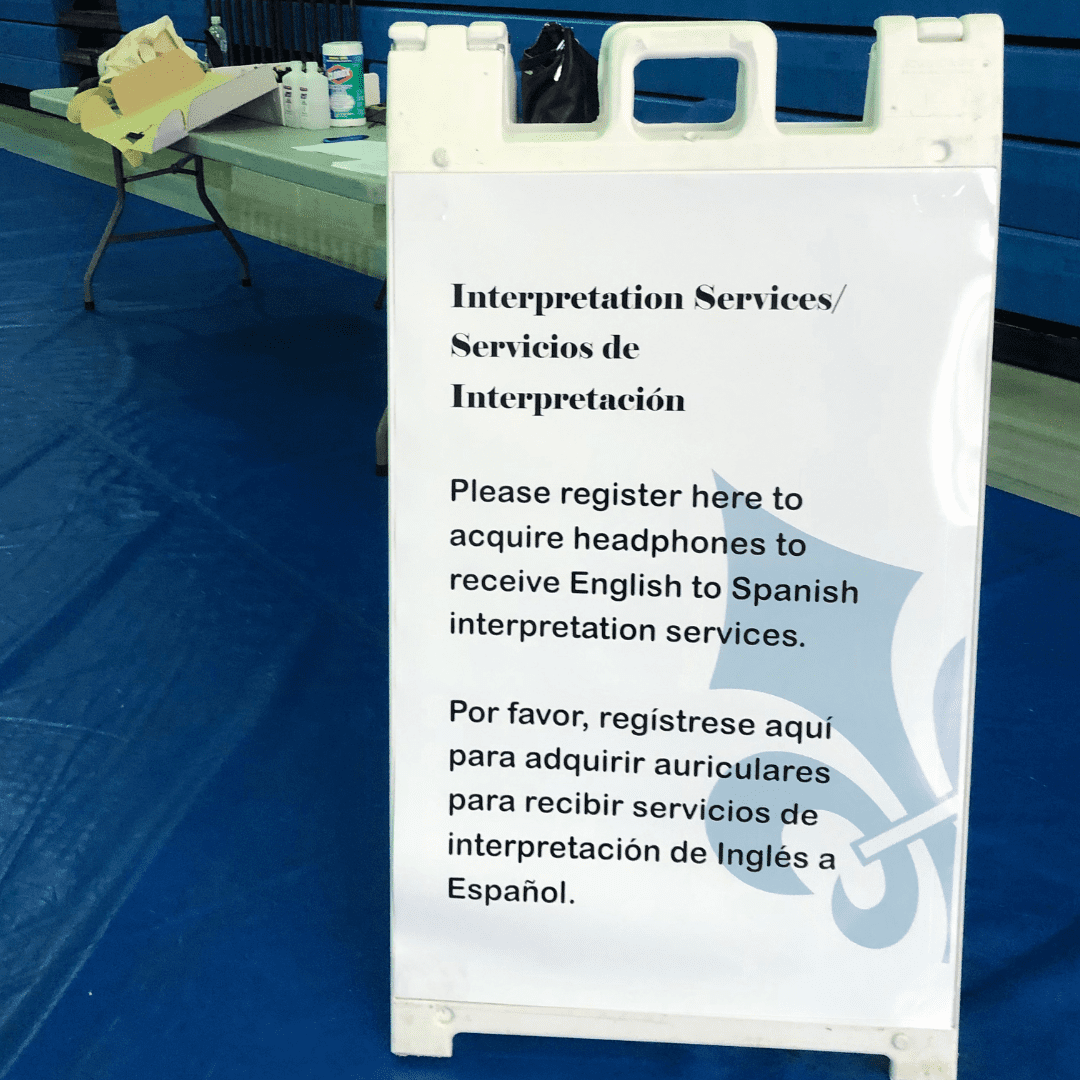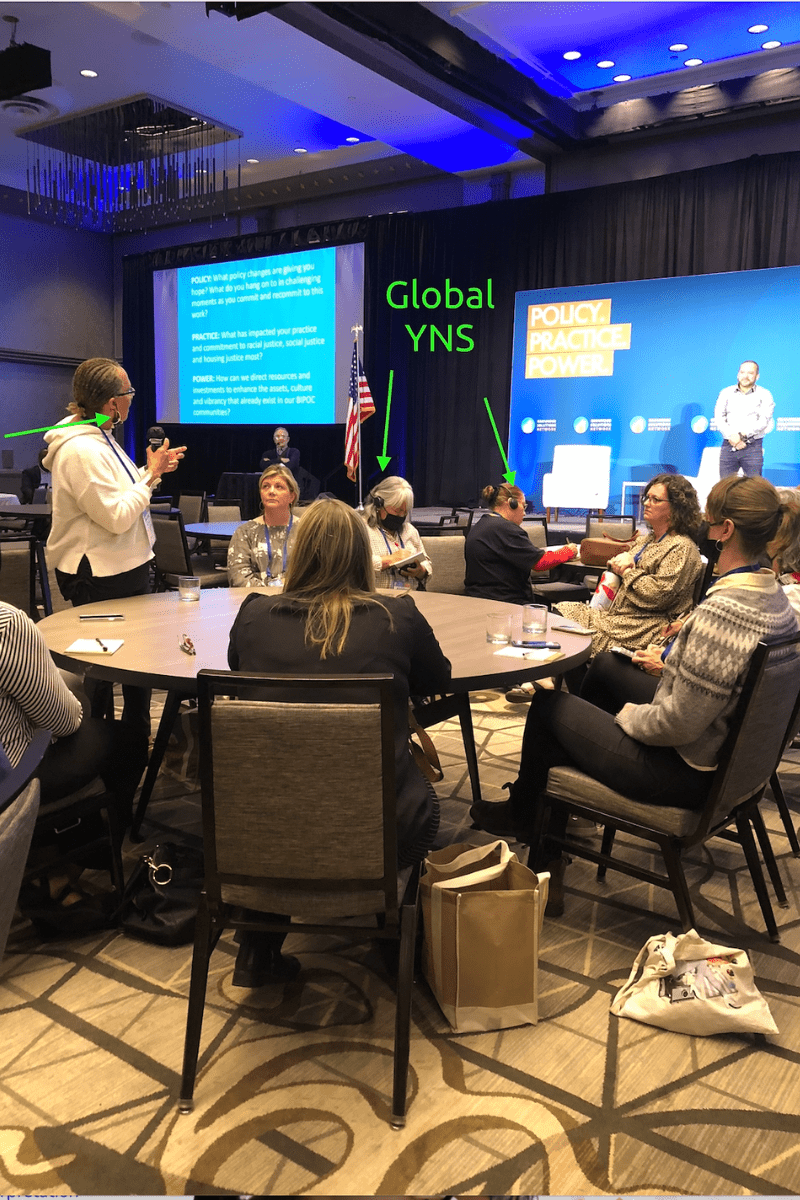Despite our best efforts – equitable language justice is far from commonplace across the US. Throughout a majority of the country, English is considered the dominant language in both the public and private sector.
And while we can’t change public policies right away – individual organizations are able to improve their approach to language justice and social justice. Washington, D.C. alone has a Spanish-speaking population of 27%.
So how can you implement language justice in your organization when nearly a third of your local population speaks Spanish? Keep reading to learn some actionable steps you can take.
Put simply – language justice is policies and actions that give equal access to individuals who speak a minoritized language.
In the case of the US, this is usually the case of Spanish-speakers in a dominantly English-speaking society. As organizations and governments typically only put communicate and present opportunities in English – this leads to non-English speakers being at a disadvantage.
So language justice seeks to close the opportunity gap and provide equal access.
As the American Bar Association puts it:
“Rejecting the notion of the supremacy of one language, it recognizes that language can be a tool of oppression, and as well as an important part of exercising autonomy and of advancing racial and social justice”
Every organization – from a local nonprofit to an entire school district – is affected by language justice.
More importantly, anyone within those organizations is harmed by a lack of language justice.
This lack of language support ends up causing:
- Employee burnout
- Unclear communication
- Decreased productivity
- Unnecessary strain
- Feelings of isolation
- Biased decisions
- Lack of true representation
- Disconnection between organization and employees
- Damaged organization culture
Which means that organization leaders need to take action to protect, support, and provide opportunities to all of their members – regardless of the language they speak.
But saying you provide equal opportunities – and taking actionable steps to do so – are two very different situations.
So let’s go through some ways you can actually implement language justice into your organization.
Create a space for language justice isn’t easy. And most of the time – it won’t happen overnight. But here are just a few immediate steps you can take to start chiseling away at those barriers.
One of the simplest tasks you can start doing right away is sending all of your internal documents in the languages of all your employees.
If you’re sending out information regarding new events, updates to policies, or just simple internal memos – that information should be accessible in more than just English.
The most efficient way to do this – reaching out for help from a Certified Document Translation Service.
Because no, running your 4-page memo through Google Translate isn’t language justice.
Do you have a social media presence? Start uploading posts in Spanish (or another target language)!
It’s a small step that shows the community – and your team – that you’re taking action to help normalize using minority languages.
If you use any special software in your organization – make sure it’s available in the minority language, too.
Whether you’re using Slack to communicate or using a more advanced inventory tool, your Spanish-speaking team members need to be able to use it efficiently, too.
Talk to your IT provider – or even just do some Googling, if you’re the do-it-yourself type. If you’re able to change the settings and give different employees access in their language – it makes a huge difference.
A simple, but impactful change – make all of your signage bilingual.
This can be anything from bathroom signs to corkboard notes in an office space. But if you want to truly incorporate language justice.
… then public spaces need to be for everyone.
While day-to-day changes are important, big events are also a crucial place to implement language justice.
If you’re hosting a conference, having a school field day, or even just a team-building exercise – you need to make sure everyone can exercise their right to participate actively.
Giving your team and your community access to professional interpretation services shows them you’re dedicated to raising up every voice – not just the loudest ones.
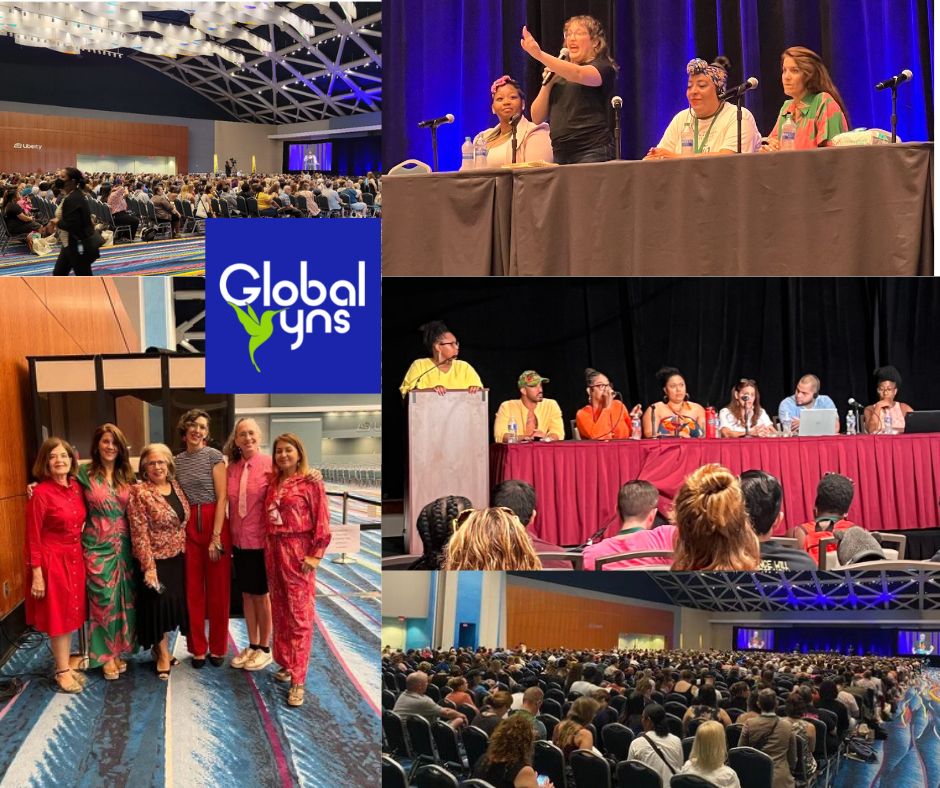
The final immediate step you can take as a leader – start planning.
You should be building language justice in your organization. And unless you have a way to snap your fingers and make everyone bilingual – you’re going to need to use interpretation and translation services more often.
Start planning organizational support for your staff and your interpreters. You can create an action plan with steps you’re going to take, ways to provide support, and goals you’d like to achieve.
By building interpretation services into your overall agenda, you’re bringing language justice to the forefront.
Because remember – language justice isn’t a one-time implementation. It takes consistent, long-term strategies to change the status quo.
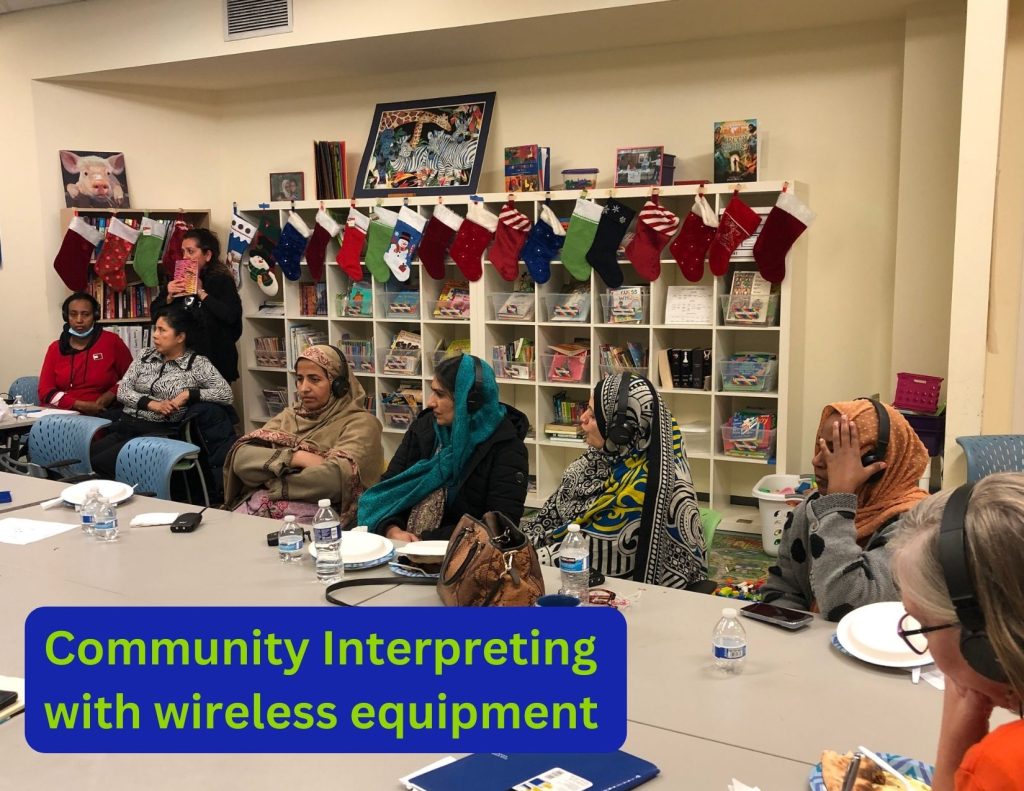
Short-term, immediate strategies are important to implement. And they do a great job at giving an immediate boost to team morale.
But if you want to create a space of long-lasting language justice, you need to normalize using minority languages in your organization.
In other words – your goal is to make your employees feel like speaking their own language is the obvious, natural, totally normal and socially acceptable thing to do.
And that requires more strategy. Let’s look at a few steps that can help:
Languages classes are one of the best ways to create a community of individuals open to different cultures and languages.
This means you should be offering language classes in both directions. Your Spanish-speaking team members should have access to English classes and your English-only employees should have access to Spanish classes.
But there are two very important caveats to keep in mind:
- The classes should be free (paid for by the organization). Because language justice implies breaking down economic barriers.
- They need to be professional classes. Hiring your neighbor’s brother’s 16-year-old son to tutor just isn’t going to cut it.
In a world where minority languages are often seen as secondary – it takes some effort to lift them up to an equal status.
And one of the most effective ways to improve how much we value a language is by flipping the scales.
So start sending out memos in Spanish first – and the English translation second. Create social media posts in Spanish and add the translation in the caption. Host your events with keynote speakers in Spanish and provide English interpretation services.
This is a strategy that many people are apprehensive to implement. Because frankly – it’s uncomfortable to put yourself in the minority position.
So besides creating space for empathy, it is by far one of the most effective long-term strategies to normalize and add prestige to a minority language.
One of the most difficult, but rewarding actions you can take is to encourage multilingual spaces at every level.
Encourage employees to speak up in their own language and create room for your Spanish-only community to feel heard.
Hire professional interpretation services for quarterly meetings and big events. You may not have the budget for an interpreter 24/7, but you can plan multilingual spaces at specific times. Slowly shift away from the dominant language and allow a bidirectional space.
Because when minority languages are always spoken at important events – the language itself starts to be perceived as important. And that is one of the primary goals of language justice.
Want to create bilingual spaces? Hire bilingual individuals.
Hire them as regional managers, administrators – every position throughout your organization. Show that you truly value individuals who can reach out to all members of your organization.
And remember – when you hire a bilingual secretary, they are a department’s secretary. Not the department’s translator.
As part of your long-term strategy – consider hiring professional language translation services or building a relationship with a translation agency.
At the end of the day – you can’t have language justice if you don’t officially have language justice.
In other words, creating Facebook ads or telling your team that you want to create inclusive spaces isn’t the same as actually doing it. You need to create official organizational documents that hold you accountable for taking actionable steps.
True language justice needs to be officially implemented in writing. Add protections in your organization’s charters and official policies
Your organization needs to clearly outline that your team members have the right to use their language.
Your community needs to be protected – in writing – from language discrimination. Creating space for language justice is more than pretty signs and occasional translations.
Because if you don’t officially add language justice into your policies, one change in leadership can undo years of progress.
One organization might not be able to change public policies at a State or Federal level – but they can implement language justice in one space. Then, little by little, we’ll encourage the rest of society to do so, too.
Implementing language justice and social justice into your organization is no small feat.
It requires effort, planning, and budgeting. But the investments are absolutely worth it. Because if we don’t invest in ourselves, our community, and our right to justice – what is the point?
At Global YNS – we’re dedicated to helping you implement strategies to promote language justice. Our mission is to build connections through languages, break down barriers, and amplify new voices – and promoting language justice is a one piece of that puzzle.
Reach out today for support with human translation and professional interpretation services in your organization.

GLOBAL YNS
Offering Superior Language Solutions,
Where quality is our Priority
